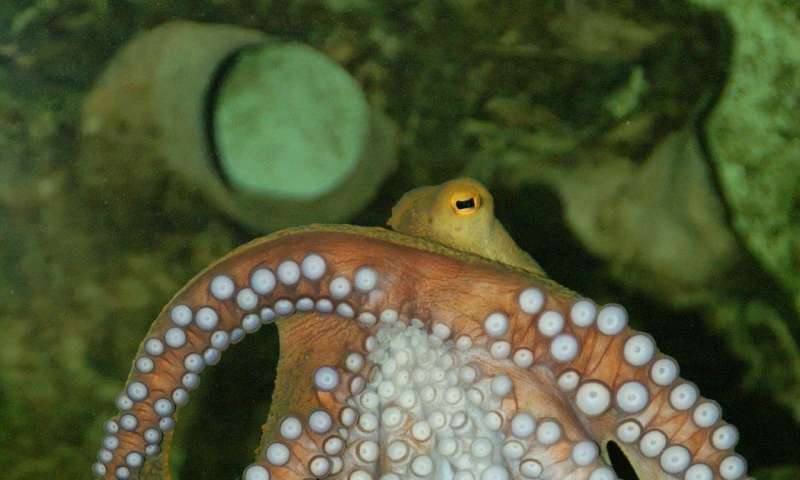James Cook University (JCU) scientists in Australia have found high carbon dioxide levels cause squid to bungle attacks on their prey.
PhD candidate Blake Spady from JCU’s ARC Centre of Excellence for Coral Reef Studies led the investigation. He said that the oceans absorb over one-quarter of all the excess carbon dioxide (CO2) released into the atmosphere by humans and this uptake of additional CO2 causes seawater to become more acidic.
“Climate models project that unless there is a serious commitment to reducing emissions, CO2 levels will continue increasing this century to reach levels that will have far-reaching effects on sea life,” he said.
Mr Spady said the team chose to study cephalopods (a group that includes squid, cuttlefish and octopuses) because most previous behavioural studies have focused on fishes, and the effects of elevated CO2 on highly active invertebrates is largely unknown.
“Cephalopods also prey on just about anything they can wrap their arms around and are themselves preyed upon by a wide range of predator species, so they occupy an important place within marine food webs.”
Find your dream job in the space industry. Check our Space Job Board »
The scientists tested the effects of elevated CO2 on the hunting behaviours of pygmy squid and bigfin reef squid.
“For pygmy squid, there was a 20% decrease in the proportion of squid that attacked their prey after exposure to elevated CO2 levels. They were also slower to attack, attacked from further away, and often chose more conspicuous body pattern displays at elevated CO2 conditions.
Bigfin reef squid showed no difference in the proportion of individuals that attacked prey, but, like the pygmy squid, they were slower to attack and used different body patterns more often.”
Mr Spady said both species showed increased activity at elevated CO2 conditions when they weren’t hunting, which suggests that they could also be adversely altering their ‘energy budgets’.
“Overall, we found similar behavioural effects of elevated CO2 on two separate cephalopod orders that occupy largely distinct niches. This means a variety of cephalopods may be adversely affected by rising CO2 in the oceans, and that could have significant consequences in marine ecosystems,” said co-author Dr Sue-Ann Watson.
“However, because squid have short lifespans, large populations, and a high rate of population increase, they may have the potential to adapt to rapid changes in the physical environment,” Mr Spady added.
“The fast lifestyle of squid could mean they are more likely to adapt to future ocean conditions than some other marine species, and this is the next question we intend to investigate.”
Provided by:
James Cook University
More information:
Blake L. Spady, Philip L. Munday, Sue-Ann Watson. Predatory strategies and behaviours in cephalopods are altered by elevated CO2. Global Change Biology, 2018; DOI: 10.1111/gcb.14098
Image:
Credit: CC0 Public Domain
